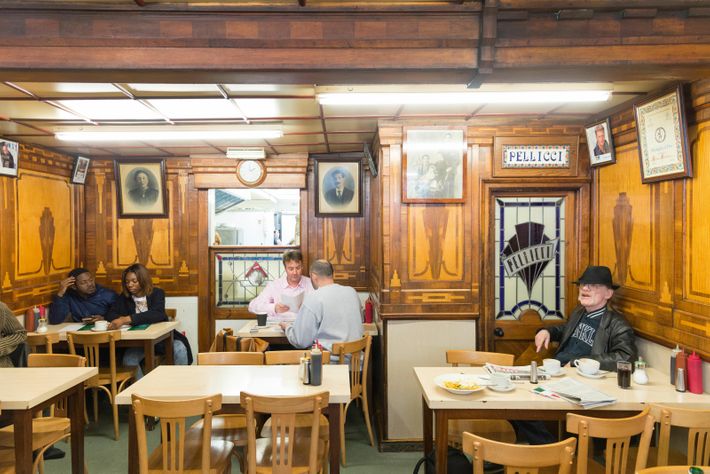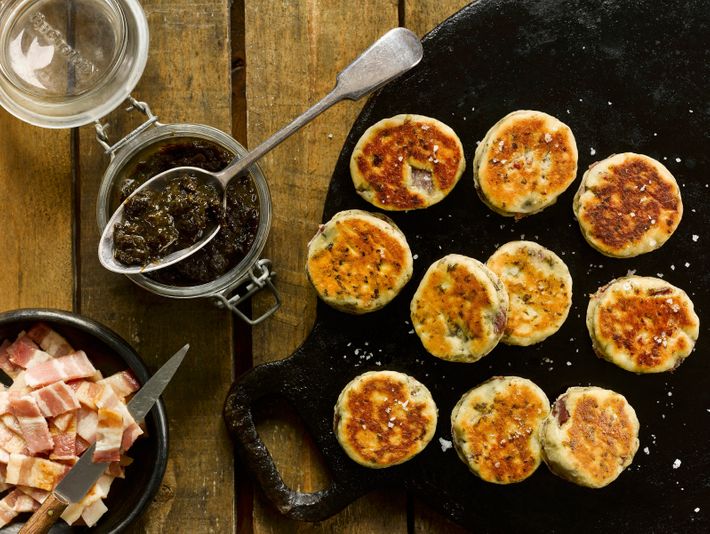Winnie the Pooh knew the importance of a good breakfast. So did James Bond, Sherlock Holmes and countless other British heroes — after all, the first meal of the day sets the tone for everything to come. As the late, great restaurant critic A A Gill once wrote, ‘Breakfast is everything. The beginning, the first thing. It is the mouthful that is the commitment to a new day, a continuing life.’ Nowhere, I think, is that promise celebrated more solemnly than in the UK, a country whose culinary prowess in the breakfast department, at least, has never been in doubt.
Indeed, it was perhaps once true that to eat well here, as the novelist Somerset Maugham put it, one ‘should have breakfast three times a day’ — a fantasy made real by the joyful advent of the all-day menu, allowing us to indulge our craving for bacon and eggs at any time. Uncle Monty’s observation in the cult classic film Withnail and I, that this is a land where breakfasts ‘set in’ like the weather, holds true: even if we limit ourselves to muesli all week, when time permits, Britons still like to go the whole hog.
And hogs are almost always involved: in a 2017 YouGov poll, 89% of those surveyed cited bacon as the most important ingredient in a full English, closely followed by eggs. After that, things get contentious — even if you leave the full Scottish, Welsh and Irish versions briefly out of the equation. Should the bacon be back or streaky (once a matter of class, according to novelist Jilly Cooper, with back being the premium option), softly pink or grilled to a crisp? And as for the eggs, do they need to be fried to make it a fry-up? (Not according to the 18-24-year-olds surveyed in the same poll, who were surprisingly keen on them scrambled.)
While tomatoes and mushrooms are very much considered optional extras across the nation, that’s pretty much where the consensus ends. Take sausages: we all agree there should be a sausage on the plate, but what sort very much depends on geography. Should it be a peppery Cumberland ring or a beefy Scottish square? Or should it be of that family of sausages known as puddings and, if so, what type?
In England, you’re most likely to come across a black pudding — made from blood, spices and cereals, and particularly popular in the northwest, home of the famous Bury iteration, which features distinctive snowy cubes of white back fat. Although well-loved in Scotland and Northern Ireland, it has more competition north of the border, where puddings come in white, red and fruit varieties as well. White pudding does occasionally pop up in England, too, most famously in the form of the spicy West Country speciality, hog’s pudding.
Wales, meanwhile, stands proudly alone in its traditional breakfast preferences. You’ll find many a standard fry-up here, but you’ll be lucky to find laverbread anywhere else (if you’re expecting something resembling bread you’ll be disappointed — laver is seaweed of the same type used to wrap maki roll sushi 5,000 miles to the east in Japan).
Bread does have a part to play in the fry-up, of course; after all, you need something with which to mop up that golden egg yolk. Down south, it usually comes in the form of toast or a crunchy fried slice, but Scotland embraces the tattie scone — made with leftover mash, which might be made into bubble and squeak in southeast England — and Northern Ireland is known for serving up both potato bread and fluffy soda farls on the same plate.
You may have noticed I’ve made no mention of that most divisive of fry-up ingredients, the baked bean. The omission is deliberate: as chef Jeremy Lee once observed, if you really need something to dip things in, add ketchup. Or brown sauce. Or even mustard. But that’s a whole other argument.
:max_bytes(150000):strip_icc():format(webp)/The-Crooked-House-UK-Leaning-Pub-Closing-Forever-FT-BLOG0823-2daf10d1b02145c1813141d5d0ca7681.jpg)





